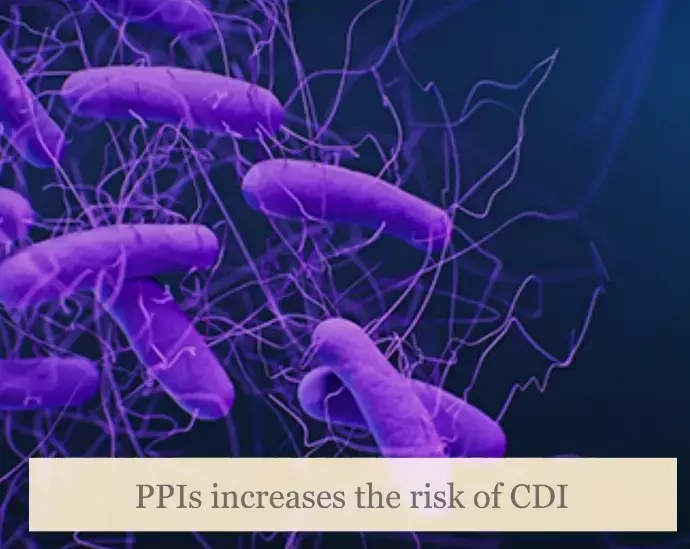- Home
- Medical news & Guidelines
- Anesthesiology
- Cardiology and CTVS
- Critical Care
- Dentistry
- Dermatology
- Diabetes and Endocrinology
- ENT
- Gastroenterology
- Medicine
- Nephrology
- Neurology
- Obstretics-Gynaecology
- Oncology
- Ophthalmology
- Orthopaedics
- Pediatrics-Neonatology
- Psychiatry
- Pulmonology
- Radiology
- Surgery
- Urology
- Laboratory Medicine
- Diet
- Nursing
- Paramedical
- Physiotherapy
- Health news
- Fact Check
- Bone Health Fact Check
- Brain Health Fact Check
- Cancer Related Fact Check
- Child Care Fact Check
- Dental and oral health fact check
- Diabetes and metabolic health fact check
- Diet and Nutrition Fact Check
- Eye and ENT Care Fact Check
- Fitness fact check
- Gut health fact check
- Heart health fact check
- Kidney health fact check
- Medical education fact check
- Men's health fact check
- Respiratory fact check
- Skin and hair care fact check
- Vaccine and Immunization fact check
- Women's health fact check
- AYUSH
- State News
- Andaman and Nicobar Islands
- Andhra Pradesh
- Arunachal Pradesh
- Assam
- Bihar
- Chandigarh
- Chattisgarh
- Dadra and Nagar Haveli
- Daman and Diu
- Delhi
- Goa
- Gujarat
- Haryana
- Himachal Pradesh
- Jammu & Kashmir
- Jharkhand
- Karnataka
- Kerala
- Ladakh
- Lakshadweep
- Madhya Pradesh
- Maharashtra
- Manipur
- Meghalaya
- Mizoram
- Nagaland
- Odisha
- Puducherry
- Punjab
- Rajasthan
- Sikkim
- Tamil Nadu
- Telangana
- Tripura
- Uttar Pradesh
- Uttrakhand
- West Bengal
- Medical Education
- Industry
PPI use increases risk of recurrent Clostridioides difficile infection

Clostridioides difficile infection (CDI) is associated with significant morbidity and mortality. Recurrent CDI is common, with between 20% to 35% of patients developing at least one recurrence after their initial diagnosis. In a recent study, researchers have found significantly higher odds of recurrent CDI among users of PPIs that persisted across multiple sensitivity analyses. The study findings were published in the journal Clinical Microbiology and Infection on 16 January 2021.
PPIs are frequently over-prescribed, and at least 50% of acid suppression medications (including H2RAs and PPIs) may be medically unnecessary. Increasing data suggest that iatrogenic gastric acid suppression is a potentially modifiable risk factor for recurrent CDI. Previous meta-analyses have evaluated the association between PPIs and recurrent CDI, however, these studies have their own limitations. Due to these limitations, and citing a lack of randomized trials, guidelines such as the Infectious Diseases Society of America (IDSA) state there is insufficient evidence for discontinuation of PPIs in patients with primary CDI as a measure for preventing recurrence and, consequently, provide no recommendation in this setting. To fill the knowledge gap researchers of America, conducted a study to evaluate the association between PPI use and recurrent CDI addressing prior methodologic limitations.
It was an updated systematic review and meta-analysis of data from MEDLINE and EMBASE. Researchers included 16 studies, comprising 57,477 patients with CDI, of whom 6870 (12%) received PPIs. They used a random-effects model to calculate summary (unadjusted) odds ratios (OR) and 95% confidence intervals (CI). They also performed a prespecified subgroup analysis to explore heterogeneity including study design, study quality, duration of follow-up, adjustment for confounders, and outcome definition.
Key findings of the study were:
♦ Researchers, upon evaluation found that the rate of recurrent CDI was 24% in patients treated with PPIs and 18% in those who were not.
♦ Upon meta-analysis that pooled unadjusted odds ratios, they noted a higher odds of recurrent CDI in patients who received PPIs than those who didn't (OR 1.69).
♦ They also noted a moderate heterogeneity between studies (I2 56%); however, a sensitivity analysis restricted to studies with 56 days of follow-up substantially reduced the heterogeneity (OR 1.59).
♦ Upon analysis that was restricted to multivariate studies and combined adjusted ORs also demonstrated higher odds of recurrent CDI in patients who received PPIs (OR 1.49).
The authors concluded, "We found significantly higher odds of recurrent CDI among users of PPIs that persisted across multiple sensitivity analyses. These results support stronger recommendations for PPI stewardship at CDI diagnosis".
For further information:
https://www.clinicalmicrobiologyandinfection.com/article/S1198-743X(21)00035-5/fulltext
Medical Dialogues Bureau consists of a team of passionate medical/scientific writers, led by doctors and healthcare researchers. Our team efforts to bring you updated and timely news about the important happenings of the medical and healthcare sector. Our editorial team can be reached at editorial@medicaldialogues.in.
Dr Kamal Kant Kohli-MBBS, DTCD- a chest specialist with more than 30 years of practice and a flair for writing clinical articles, Dr Kamal Kant Kohli joined Medical Dialogues as a Chief Editor of Medical News. Besides writing articles, as an editor, he proofreads and verifies all the medical content published on Medical Dialogues including those coming from journals, studies,medical conferences,guidelines etc. Email: drkohli@medicaldialogues.in. Contact no. 011-43720751


